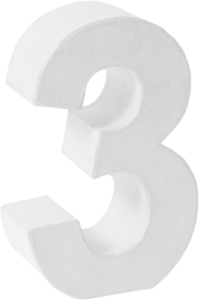Uncategorized.
-
9 Cool Things Our Clients Did
Meaningful work with people we love – our mantra since Emerson opened its doors in 2001. Last year was no different. Here’s a recap.They tackled AI, onboarding, streamlining, CRM, and leadership.
We got to work on some epic stuff in 2022. Here’s what a few of our clients invested in last year.

A global professional services firm helped employees get up to speed on Artificial Intelligence.
To create the new Artificial Intelligence Academy, we built learner personas, illustrating the technical and professional skills they will need to help clients understand AI solutions. Then we partnered with a technical training firm to script, design, and develop a simulation so learners can practice their new skills in an AI project scenario.

A national water solutions company onboarded over 500 new team members, doubling in size.
HR and functional teams built a program to welcome, train, and motivate their new team members. Onboarding involved 40 trainers, 118 classes/modules, 1007 learners, and 11,396 hours of training. We also jump-started a formal leadership development program for all people-leaders in the business.

A global retail client boosted their organizational change management capability.
They launched a new Organizational Change Management (OCM) office to handle the increase in transformation projects impacting employees. We helped the new OCM team align on a custom change management methodology. We also built tools, templates, and a digital playbook on SharePoint to help project managers and change leads execute the methodology consistently.

An international business upped revenue by cross-selling existing digital assets.
Our client wanted more of their international customer base to buy and use their digital products. Subject matter experts for 20 existing high-impact digital assets helped us create short, self-guided, virtual, interactive learning programs for the firm’s practitioners. Each program teaches the “who, what, when, where, and why” for all 20 assets. The training boosted confidence and instilled new behaviors to lead client sales conversations.

A global retailer streamlined their contract labor supplier pool to reduce complexity and risk.
We helped hiring managers make the business process and technology changes feel “familiar, controlled, and successful.” We aligned the future-state processes with what was familiar to them and presented the “what’s in it for me” for the new tool. We created roadmaps for stakeholders, providing visibility and individual control as the changes rolled out.

A global professional services company invested in critical skills.
They targeted skills to improve innovation, decision-making, and collaboration. We helped design, develop, and deliver the program, which uses bio-psycho-social practice to boost critical thinking, empathy, communication, and resilience.

Three clients improved the customer experience with Customer Relationship Management (CRM).
We helped these three companies by shining a light on the people side of their CRM implementations. Specifically, we helped employees understand how their jobs would change and how to “survive” the transition to a new CRM. We analyzed the impacts on them, engaged the workforce, prepared them for go-live, and built internal change capability for the long term.

A U.S. DOE Office of Science national laboratory built behaviors that drive change.
We helped the lab identify the key employee behaviors that would foster positive change: collaboration, role clarity, and proactive leadership. We then created ways to focus stakeholder attention on the right behaviors and provide coaching to leaders.

A well-known brand turned their people leaders into consultants.
They acknowledged that their own managers were operating as consultants to their internal and external customers, solving problems and influencing change every day. We curated the licensed content from Peter Block’s Flawless Consulting book, then designed and built custom learning for a global audience. This client now sees management through the lens of a consultant, who is “flawless” when they are being direct and authentic with their customers.
-
Landing Your Dream Job: Read Our Advice Before You Apply
Want to land a job with Emerson – or any company? Here’s what we recommend.How to Get a Job with Us – or Anyone
The first recruiting Emerson ever did took place about 20 years ago, in our first company headquarters – our CEO’s basement. Our recruiter conducted phone interviews surrounded by critters – Trish’s cat, her large poodle, and the overly friendly woodland animals who made their way through the open window.
“Can you tell me a bit about what made you contact us?” Our recruiter asked one candidate. “Well, actually,” he answered enthusiastically, “my dad said great things about your company. He used to work for Emerson!”
Cool story, bro. At that time, we were just a few months old, so we didn’t know your dad.
In those early days, the average person thought “Emerson” was a window company or the electric company, depending on their geography. Candidates often said they knew our work, but that was rare.
Today, candidates seem to be as informed about our company as we are. They have worked alongside our employees at client sites, attended our workshops, read our books, and spent hours on our website. We offer the flexibility today’s workforce wants — to work remotely and make their own hours, while serving our clients well. They know who we are and they know they want to work with us.
That makes our job a little harder. The candidates we talk to love Emerson. They love what we stand for, what we do, how we do it, and who we are. We love them right back. We sometimes wish we could hire all of them, but we can’t. Our recruiters have to make tough decisions.
Want to land a job with Emerson – or any company? Here’s what we recommend:
Impress us with your communications.
If you represent Emerson, you will help clients create business outcomes. There are a lot of documents and deliverables that support those outcomes, and they have to be exemplary. The first deliverable we see is your resume. If we wouldn’t present it to a client, we can’t hire you. Is your resume well written, succinct, good-looking, and honest? Great! We’re already interested.
If we ask you for a writing sample, make sure it’s your best work. It might seem like a perfunctory step in the process, but we take it very seriously. The same with your emails to us. We ask ourselves whether we’d send them straight to a client, under our logo. That’s a high bar.
Be yourself.
If you are smart, polished, funny, or professional, we will love talking to you. But if you are consciously trying to seem smart, polished, funny, or professional…you won’t. You will just sound like you aren’t being yourself. Or, worse yet, you might come off sounding pompous or defensive. We want to get to know the real you. That’s the only person we want to meet.
Do your work.
Sometimes we come across candidates who misunderstand what we do. If you don’t really understand what we do, your examples will just make things worse – they will prove you don’t know the job you’re applying for.
There are also candidates who DO understand what we do, but they’ve never done it. They’ve been around it, next to it, have a friend who does it… Writing an article about a house fire is not the same thing as being a firefighter. Just be clear and distinct about your experience. Not having every skill we need is better than “stretching” your experience to seem like you do.
Answer the question.
The bulk of an interview is made up of questions and answers. Our conversation will go smoothly if you answer the question that was asked. Sometimes it’s simply too much of a good thing – enthusiasm can make you lose track or talk in generalities. Or, maybe you don’t know the answer. That’s ok! It’s always better to be honest. When you are honest, we can have a real and productive conversation and get to the right answer for both of us.
Remember the “I” in team.
For the purposes of our interviews, there is an “I” in team. If you’re a great person to work with, you’re probably used to acknowledging other people’s contributions and seeing every victory as a team effort. And we love that – that fits our culture beautifully. But, just for this conversation, we need to know what you did. We’re not hiring your whole team. What was your role? What did you deliver? What difference did you, personally, make to your company or client?
Mind your manners.
We are grateful for your interest in our company. We appreciate the time you take in getting to know us. We feel lucky you sought us out as a potential employer. We like it when we can tell you feel grateful, appreciative, and lucky too.
We hire experts in behavior change. They are smart, capable, kind, collaborative, down-to-earth people with a great sense of humor. If this describes you, and you take our few bits of advice, we’d love to hire you. Who wouldn’t?
-
Stephen Colbert’s Tribute to Jon Stewart
Colbert called out what makes a great leader: Mastery. Modeling. Intention. Focus. Respect for others. Character.Mr. Colbert called out what makes a great leader: Mastery. Modeling. Intention. Focus. Respect for others. Character. If there’s a better definition of what it means to lead well, please let me know. Here’s Colbert’s entire speech. Thank you Mary Stewart (no relation) for transcribing it (I fear blood was dripping from her ears, like Jon’s Fox News staff). (Are you kidding? You paid me to listen Stephen Colbert. Could that be my whole job now? – MS)
==================
SC: “Jon, like Frodo, you are leaving us on a voyage for the undying lands. For 16 years, you and your basic cable fellowship of funny clutched that ring of power and trudged up the steep slopes of Mount Doom. The ring of power in this metaphor is a metaphor for power. The power to be a player in the world of media and Washington politics.”
JS: “Yeah but I don’t really want that, so…”
SC: “Jon, you know who else didn’t want that?”
JS: “Frodo.”
SC: “Your words, Jon. Frodo thought surely Saruman would know they meant to destroy the ring, but I don’t have to tell you what Gandalf said about that.”
JS: “You’re just going to tell me though, aren’t you?”
SC: “He said, and I’m paraphrasing here, though I could do it verbatim if I wanted… He said, ‘My fellow Americans, it has not entered into Sauron’s darkest dreams that we would seek to destroy rather than wield this hideous power.’ And in Gandalf’s metaphor here, power also stood for power.”
JS: “I just want to say that I am so touched that everybody could be here tonight…”
SC: “Me too, Jon. Is there a party or anything? Because I brought a lot of people from CBS and I told them I know you.”
JS: “Yes, there is a party and you can go to it. Stephen Colbert, everybody.”
SC: “Actually, Jon, we’re not quite done. Just a moment, Jon. No…you can’t stop anyone because they don’t work for you anymore. Huge mistake, Jon. It’ll be quick if you just hold still.
Jon, I’ve been asked and have the privilege to say something to you that is not on the prompter right now. Here’s the thing, Jon, you said to me and to many other people here years ago never to thank you because we owe you nothing. It is one of the few times I’ve known you to be dead wrong.
We owe you … and not just what you did for our career by employing us to come on this tremendous show that you made … we owe you because we learned from you. We learned from you by example how to do a show with intention, how to work with clarity, how to treat people with respect. You are infuriatingly good at your job. And all of us who were lucky enough to work with you for 16 years are better at our jobs because we got to watch you do yours. And we are better people for having known you.
You are a great artist and a good man and personally, I do not know how this son of a poor Appalachian turd miner … I do not know what I would do if you had not brought me on this show. I’d be back in those hills mining turds with Pappy. Jon, you know by now I’d have Dung Lung. So Jon, I know you are not asking for this, but on behalf of all those people whose lives you have changed over the last 16 years, thank you. And now, I believe your line is … and correct me if I’m wrong … ‘We’ll be right back.’”
